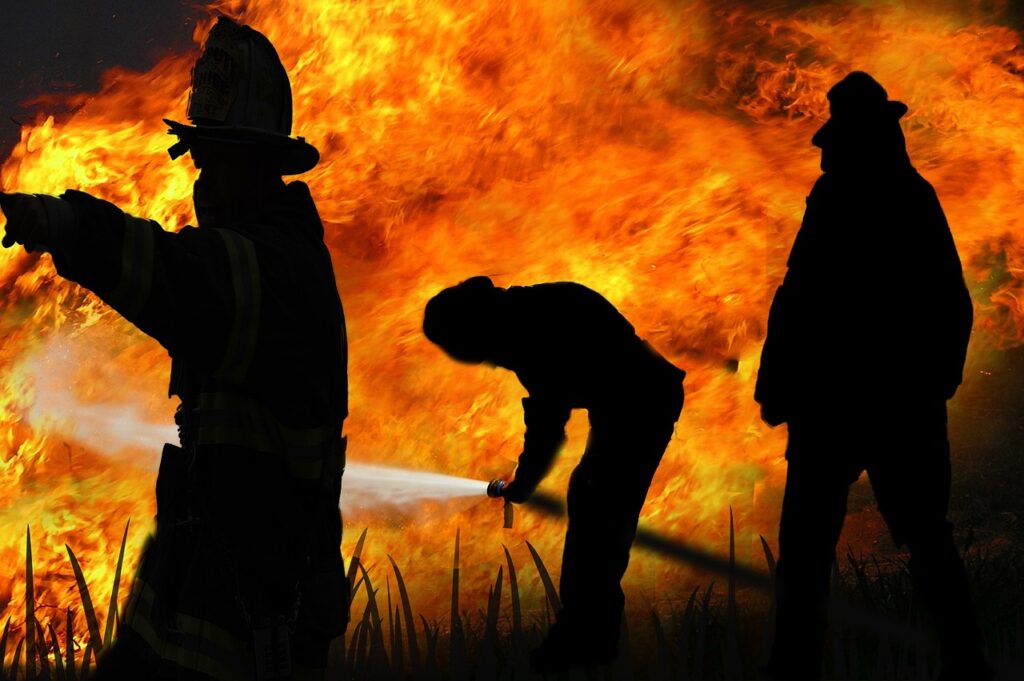Mental Health Awareness Month
May is the month for Mental Health Awareness. First Responder Coaching has been pushing awareness since its inception. While there’s still some organizations with their heads in the sand, the suicide rate is not declining among first responders. The rate of mental health diagnoses among first responders is up to 30%, much higher than the general population. The first responder population is still on fire.
The growth of awareness campaigns and mental health discussions is certainly increasing but we’re missing a crucial component: action. People are aware, at least more than they have been. Organizations are becoming more aware and politicians are having discussions. Great, people know. Now what?
Now, we need to DO something about it instead of just having conversations. It’s time to do something, to act on all these issues and start solving the problem instead of just crunching numbers and watching the death toll continue. Now is the time to do something to stop first responder suicides and build better, healthier, more resilient responders.
What Can We Do?
It may seem out of our hands at the individual level, but there’s a few things we can do to help those dealing with mental health issues. Our small steps lead to larger steps. Just like sharing a post or telling a friend are small steps in awareness, these steps lead to bigger steps in action.
Political Solutions
Government officials have legislation at their fingertips that could combat these issues. They help secure grants for mental health resources and training. They push for better mental health care coverage. Given the right support and raising our voices, our officials could pave the way to normalizing mental health care for first responders until it feels expected to speak to someone or check in after a traumatic call or to have an annual mental health check. New York’s Sheriff’s Association received a grant for $100,000 last year to use AT&T FirstNet’s Health and Wellness Coalition.
Community Solutions
Building support in the community is easier than you might think. There’s loads of support organizations you can help fund with donations You can also organize campaigns in your home community to support a specific need for responders around you. After a passing of a first responder, support the family or the department with donations, resources, meals, or even child care. Honor those who have been lost to suicide with a memorial. Care pouches, meals, and card campaigns are all ways to show your support to first responders and reduce some mental health stress. Don’t feel overwhelmed. It’s time to do something and everyone has something they can do.
Here’s more ideas taken from 9 Ways to Give Back to First Responders (2020):
- Support organizations like “The R.I.S.E program – Restoring Independence Supporting Empowerment – provides mortgage-free and fully customized homes to first responders, while also including home modifications, adapted vehicles and mobility devices.”
- Pair a rescued dog with a responder by supporting the National Disaster Search Dog Foundation.
- Nominate a responder for the Hook a Hero program where they can experience new purpose through fishing, hunting, hiking and more while receiving mental health and peer support.
Personal Solutions
Know a first responder in need of support? You can take time to do something on the personal level. Get to know your responder and the job they perform to help you gain compassion so you can be more understanding of their stressors. Never assume you fully understand but be patient and willing to listen any time they are willing to share. Pay attention to their behaviors and needs, noting any changes that raise red flags to PTSD, depression, or suicidal ideation. If you ever feel your responder is in danger, call the Suicide Prevention Line at 988. Continue to support healthy habits that relieve stress and give a sense of purpose and joy. Don’t forget to take care of yourself. In order to support another, you need to be able to stand for yourself first. Most of all, show appreciation of your beloved responder so they know they are loved, appreciated, and supported.
Beyond Awareness
We continue to spread awareness and education, but it’s time to do something as well. It’s time to take action and do something to prevent more suicide and increase the resiliency rate among first responders. At FRC, we continue to support our responders and those around the world. We offer personal coaching, organization packages, and group coaching. We urge you to join in this effort with not just awareness but action. It’s time to do something and it starts with you.
